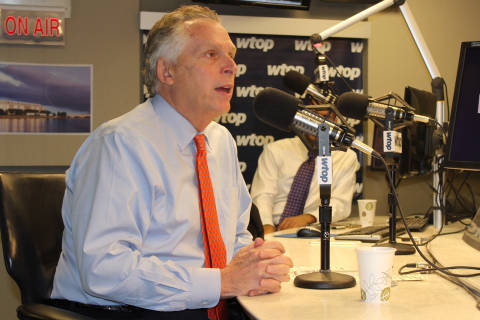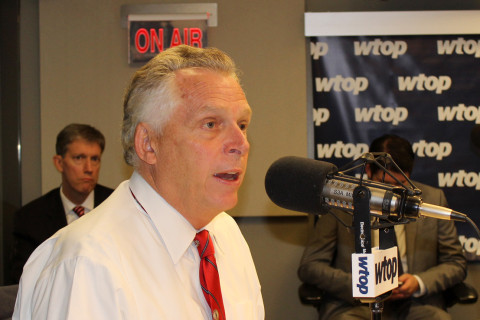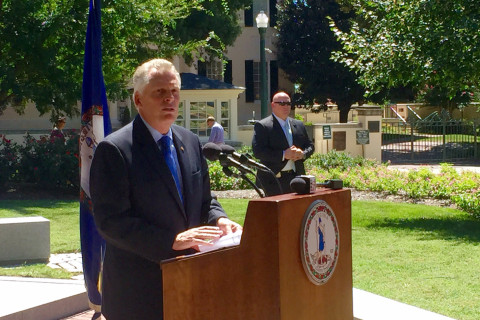WASHINGTON — Virginia’s governor is in the last year of his four-year term. Wednesday begins the last lawmaking session in Richmond that the governor will be able to push his legislative agenda.
Both the General Assembly and the governor will be dealing with the current budget shortfall and the cuts that will likely come along with it.
Dr. Stephen Farnsworth, professor of political science at University of Mary Washington said, “I tend to think Republicans majorities in the legislatures will continue to deny the governor a significant legacy on any issue that they would need to work on collaboratively.”
He said Gov. Terry McAuliffe’s legacy will not be anything on the magnitude of former governor Bob McDonnell’s big transportation package. But he said that McAuliffe is increasingly focused on the issue of economic development, trying to diversify the state’s economy beyond the heavy defense industry. “The governor’s legacy is likely to focus on these issues of economic development,” Farnsworth said.
A lot of economic development efforts enjoy bipartisan support — such as when the governor goes on trade missions to try to bring business to Virginia or expand the export market. But Farnsworth said that McAuliffe’s signature, legislative issue when he took office was expanding Medicaid as part of the Affordable Care Act. The governor has even less of a chance to get that passed in his final year, said Farnsworth.
Dr. Larry Sabato, director of the Center for Politics at the University of Virginia, agrees that economic development will be part of the McAuliffe’s legacy. But Sabato said this legacy will also depend on who wins the Virginia governorship next.
“The election of a successor who can preserve and extend what he has been able to accomplish in economic development and other things,” Sabato said.
McAuliffe is strongly backing Democratic Lt. Gov. Ralph Northam to be the state’s next governor. The Virginia gubernatorial Election Day is Nov. 7, with the primaries taking place on June 13.
Sabato said McAuliffe had a very difficult governorship because Virginia’s economy depends heavily on federal spending; and cutbacks at the federal level have been devastating for the state.
He said it is easy to govern in times of plenty but difficult in times of want, and that has been McAuliffe’s fate, adding that McAuliffe has also had a tough governorship is because the Democratic Party lost control of the Senate, giving Republicans control of both houses of the Virginia General Assembly.
Sabato said the real question is whether McAuliffe can continue his signature initiatives in economic development. “That’s where he made a difference. It’s his natural bailiwick. He’s an accomplished businessman, and he’s traveled the world trying to make as many deals as possible for Virginia,” he said.
Both Farnsworth and Sabato agree that the Republicans will try to deny the governor a legacy.
Sabato said that Republicans are not going to give the governor any big triumphs in this election year. “That’s going to limit what McAuliffe can accomplish in his final year, in addition to lame duck-itis,” he said.
“It’s difficult to say. We’ll have to see what comes out of the legislature. You never know what’s going to happen. Sometimes governors do something big in the last year and the legislature goes along. Maybe it’s in response to a crisis that’s unseen at the moment,” Sabato said.







